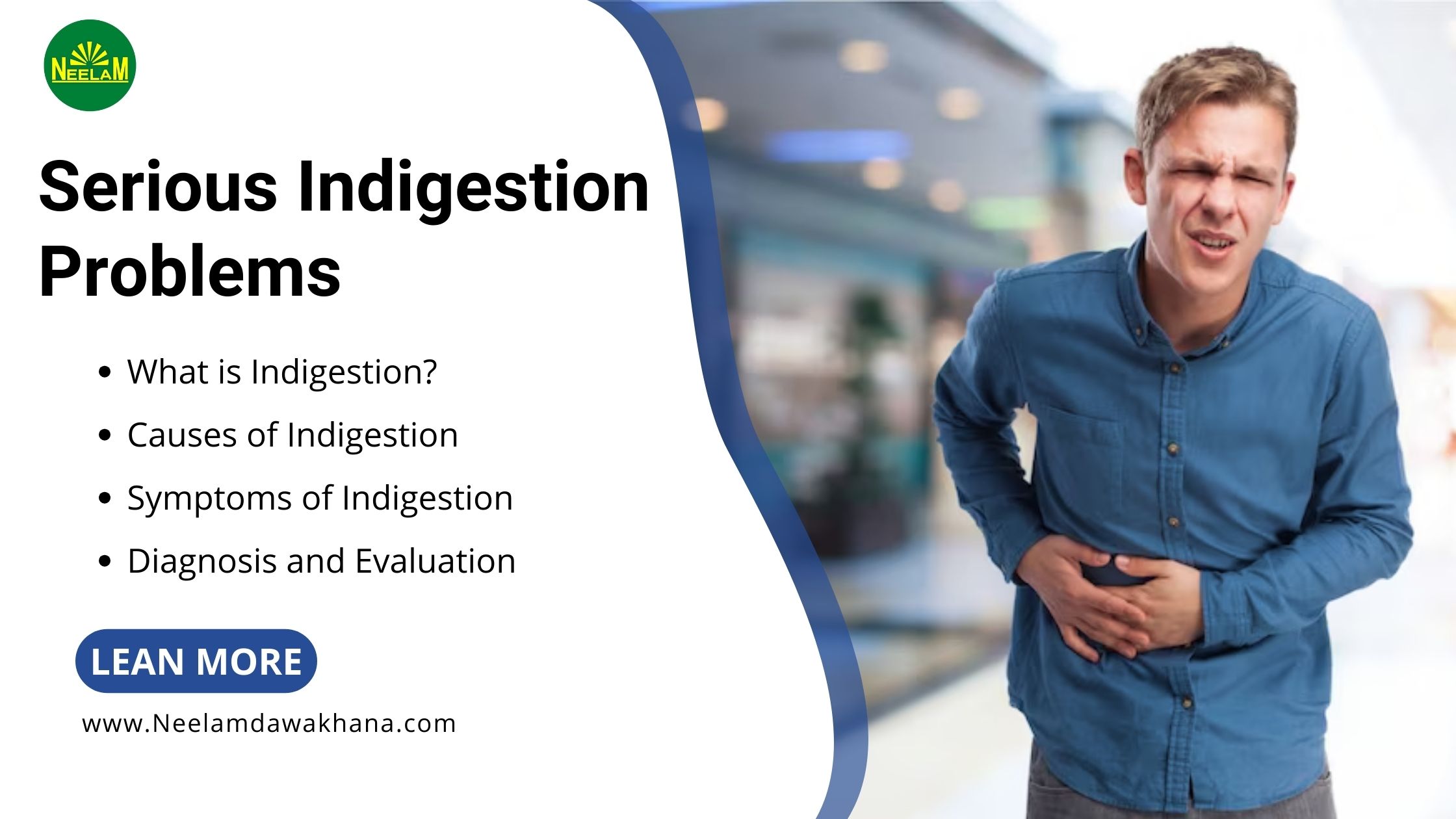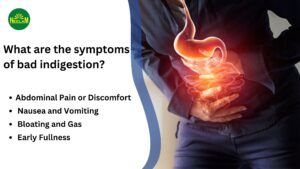Table of Contents
- Serious Indigestion Problems: A Comprehensive Guide
- Introduction:
- What is Indigestion?
- Causes of Indigestion:
- Symptoms of Indigestion:
- Diagnosis and Evaluation
- Treatment Options for Indigestion
- Prevention and Lifestyle Tips
- Conclusion:
- FAQ’s
- 1. What are the common causes of serious indigestion problems?
- 2. What are the typical symptoms of serious indigestion problems?
- 3. When should I seek medical attention for indigestion symptoms?
- 4. How is serious indigestion diagnosed?
- 5. What are the treatment options for serious indigestion problems?
- 6. Are there any natural remedies or alternative treatments for serious indigestion?
- 7. Can serious indigestion problems be prevented?
Serious Indigestion Problems: A Comprehensive Guide
Introduction:
Serious indigestion problems can significantly impact one’s quality of life, causing discomfort, pain, and even leading to more severe health issues if left untreated. In this comprehensive guide, we will delve deep into the various aspects of indigestion, including its causes, symptoms, diagnosis, treatment options, and preventive measures. By gaining a better understanding of indigestion, you can take proactive steps to manage and alleviate your symptoms effectively.
What is Indigestion?
Indigestion, also known as dyspepsia, is a term used to describe discomfort or pain in the upper abdomen. It often occurs during or after eating, but can also manifest at any time. Indigestion is not a disease itself, but rather a symptom of an underlying problem with the digestive system.
Causes of Indigestion:
1. Diet and Eating Habits: Consuming spicy, fatty, or greasy foods, overeating, eating too quickly, or consuming excessive amounts of caffeine or alcohol can contribute to indigestion.
2. Gastroesophageal Reflux Disease (GERD): GERD is a chronic condition where stomach acid flows back into the esophagus, causing irritation and inflammation, which can lead to indigestion symptoms.
3. Peptic Ulcers: Open sores that develop on the lining of the stomach, esophagus, or small intestine can cause indigestion, particularly when aggravated by certain foods or medications.
4. Gallstones: Gallstones are hardened deposits that form in the gallbladder. When they obstruct the bile ducts, they can lead to indigestion and other digestive issues.
5. Stress and Anxiety: Emotional stress and anxiety can affect digestion and exacerbate symptoms of indigestion.
Symptoms of Indigestion:
– Burning sensation or discomfort in the upper abdomen
– Feeling excessively full or bloated after meals
– Nausea or vomiting
– Belching or flatulence
– Acidic taste in the mouth
– Difficulty swallowing
Diagnosis and Evaluation
Diagnosing indigestion involves a thorough evaluation of symptoms and medical history, as well as various diagnostic tests to rule out underlying conditions:
1. Medical History: Your healthcare provider will inquire about your symptoms, diet, lifestyle habits, and any medications you are taking.
2. Physical Examination: A physical exam may be performed to check for signs of underlying conditions such as abdominal tenderness or swelling.
3. Laboratory Tests: Blood tests may be conducted to assess for infections, inflammation, or other abnormalities.
4. Imaging Studies: Imaging tests such as X-rays, ultrasound, or endoscopy may be ordered to visualize the digestive tract and identify any structural abnormalities or conditions such as ulcers or gallstones.
5. pH Monitoring: For suspected cases of GERD, pH monitoring may be performed to measure the acidity levels in the esophagus over a 24-hour period.
Treatment Options for Indigestion
Treatment for indigestion aims to alleviate symptoms and address underlying causes. Depending on the severity and underlying condition, treatment options may include:
1. Lifestyle Modifications:
– Dietary Changes: Avoiding trigger foods such as spicy, fatty, or acidic foods, eating smaller meals, and avoiding lying down immediately after eating.
– Stress Management: Practicing relaxation techniques such as deep breathing, meditation, or yoga can help reduce stress and improve digestion.
– Weight Management: Maintaining a healthy weight through diet and exercise can help alleviate symptoms of indigestion.
2. Medications:
– Antacids: Over-the-counter antacids can help neutralize stomach acid and provide temporary relief from indigestion symptoms.
– Proton Pump Inhibitors (PPIs): PPIs reduce the production of stomach acid and are often prescribed for cases of GERD or peptic ulcers.
– H2 Receptor Antagonists: These medications reduce the production of stomach acid and can help alleviate symptoms of indigestion and GERD.
– Prokinetics: Prokinetic agents help improve gastrointestinal motility and may be prescribed for individuals with delayed gastric emptying.
3. Surgery:
– In cases where indigestion is caused by structural abnormalities such as hiatal hernias or severe GERD that does not respond to medications, surgical intervention may be recommended.
Prevention and Lifestyle Tips
Preventing indigestion involves adopting healthy lifestyle habits and making dietary modifications:
– Eat Smaller, Frequent Meals: Instead of large meals, opt for smaller, more frequent meals to prevent overloading the digestive system.
– Avoid Trigger Foods: Identify and avoid foods that trigger indigestion symptoms, such as spicy, fatty, or acidic foods.
– Practice Mindful Eating: Chew food slowly and thoroughly, and avoid rushing through meals.
– Maintain a Healthy Weight: Obesity increases the risk of indigestion and other digestive disorders, so strive to maintain a healthy weight through diet and exercise.
– Manage Stress: Find healthy ways to manage stress, such as exercise, meditation, or spending time with loved ones.
Conclusion:
Serious indigestion problems can significantly impact your daily life, but with the right knowledge and proactive management strategies, you can effectively alleviate symptoms and improve your digestive health. By understanding the causes, symptoms, diagnosis, treatment options, and preventive measures outlined in this guide, you can take control of your indigestion and enjoy a better quality of life. Remember to consult with your healthcare provider for personalized advice and treatment recommendations tailored to your specific needs.
For further resources and expert guidance on managing indigestion and other digestive health concerns, visit Neelamdawakhana. Neelamdawakhana offers a comprehensive range of natural remedies and healthcare solutions designed to promote digestive wellness and overall well-being. With a commitment to providing safe, effective, and holistic treatments, Neelamdawakhana empowers individuals to take charge of their health and live their best lives. Visit Neelamdawakhana today to learn more and embark on your journey to optimal digestive health.
FAQ’s
1. What are the common causes of serious indigestion problems?
– Serious indigestion problems can be caused by various factors, including diet and eating habits, gastroesophageal reflux disease (GERD), peptic ulcers, gallstones, and stress or anxiety.
2. What are the typical symptoms of serious indigestion problems?
– Symptoms of serious indigestion problems may include a burning sensation or discomfort in the upper abdomen, feeling excessively full or bloated after meals, nausea or vomiting, belching or flatulence, acidic taste in the mouth, and difficulty swallowing.
3. When should I seek medical attention for indigestion symptoms?
– While occasional indigestion is common and often resolves on its own, persistent or severe symptoms warrant medical evaluation. Seek medical attention if you experience frequent or prolonged episodes of indigestion, severe abdominal pain, difficulty swallowing, unintended weight loss, or vomiting blood.
4. How is serious indigestion diagnosed?
– Diagnosing serious indigestion involves a thorough evaluation of symptoms, medical history, and various diagnostic tests such as blood tests, imaging studies (X-rays, ultrasound, endoscopy), and pH monitoring to assess acidity levels in the esophagus.
5. What are the treatment options for serious indigestion problems?
– Treatment for serious indigestion may include lifestyle modifications (dietary changes, stress management, weight management), medications (antacids, proton pump inhibitors, H2 receptor antagonists, prokinetics), and in some cases, surgical intervention for underlying structural abnormalities.
6. Are there any natural remedies or alternative treatments for serious indigestion?
– Some individuals find relief from indigestion symptoms through natural remedies such as herbal supplements (ginger, peppermint), probiotics, dietary changes (avoiding trigger foods), and alternative therapies like acupuncture or chiropractic care. However, it’s essential to consult with a healthcare professional before trying any new treatment approach.
7. Can serious indigestion problems be prevented?
– While it’s not always possible to prevent indigestion entirely, adopting healthy lifestyle habits such as eating smaller, frequent meals, avoiding trigger foods, practicing mindful eating, maintaining a healthy weight, and managing stress can help reduce the frequency and severity of indigestion episodes.
Remember, if you have any concerns or questions about serious indigestion problems or your digestive health in general, it’s essential to consult with a qualified healthcare provider for personalized advice and treatment recommendations.


